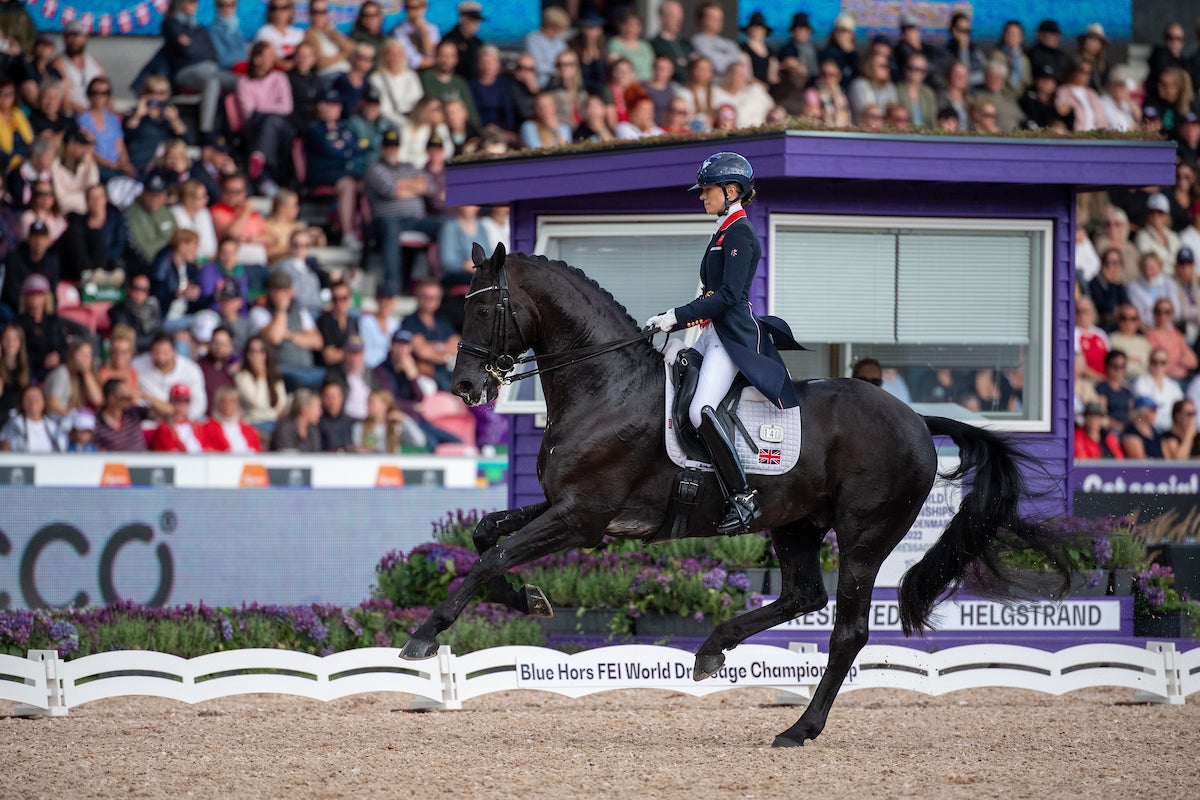Bombshell report reveals bullying, racism and classism strife in British equestrianism
British Equestrian chief admits report was a “tough read”

Bullying is “common-place” in areas of British equestrianism and racialised experiences “emerged strongly”, a hard-hitting report commissioned by the sport’s national governing body has revealed.
British Equestrian chief executive Jim Eyre admitted that some of the 89-page report was “a tough read” and he has vowed to see “a vibrant equestrian community free from discrimination”.
The research study carried out by AKD Solutions found that 24 per cent of those who participated in the project felt that racial discrimination adversely affected their ability to fully access and benefit from equestrian activity.
And while 33 per cent of white respondents agreed that working in an equestrian environment was a viable career option, figures from black, Asian or mixed background were just six per cent, 10 per cent and 16 per cent, respectively.
“At present, the demand for equine activity in diverse communities often goes unmet and many equestrians from diverse backgrounds struggle to find their place within the industry,” AKD said.
This, though, is reflective across the equestrian industry for all participants with a supply and demand issue for riding schools, with more than 70 per cent having a new customer waiting list.
Other areas highlighted include the sport’s perceived “elitist and classist” nature, a lack of awareness surrounding available riding opportunities and location of equestrian facilities, plus prohibitive costs.
The four-month research project involved speaking to 800 black, Asian and other ethnically-diverse people to learn about participation, engagement or interest in equestrian activity.
Nine key themes emerged in the report, including bullying and racialised experience, exclusivity in equestrianism, affordability as a barrier to participation and a missing diversity ethos.
“Participants stated bullying was common-place within riding schools and liveries, with many equestrian environments feeling emotionally unsafe for them,” the report noted.
“In interviews, black participants recalled a number of instances where bullying within riding schools and liveries was racialised and interviewees spoke of moving liveries due to this, even when incurring significant additional cost.
In one riding centre, the concern around welfare was so high that they had to resort to sending a hijab-wearing Muslim staff member out in advance into the spaces and the use the treatment the staffer received to guage if it was emotionally safe and inclusive for young people to visit.
The names of horses was another seemingly innocuous experience that contributed to emotionally-unsafe environments, the report noted. At an experience day at a riding centre, one of the names of the horses told to the participants had strong associations with an old practice of enslaved black men forced to fight for the amusement of slave masters.
“Members of the group attending were outraged at this and felt the riding school was ‘ignorant’ and ‘lacking awareness’ of the potential meaning for this group and thus ill-equipped to support and foster an inclusive environment,” the report said.
“Demand and poor experience contribute to the lack of ethnic and socio-economic diversity. British Equestrian and other industry bodies must act intentionally to change the industry landscape.”
The report was commissioned by British Equestrian and its 18 members bodies, such as the three Olympic disciplines of eventing, dressage and showjumping, the British Horse Society, the Pony Club, Riding for the Disabled Association and British Grooms Association.
Among 11 recommendations made by AKD to British Equestrian are a universal commitment to anti-racist and anti-classist equestrian environments, an open door complaints and grievance practices, investing in urban equestrian centres and keeping records of diversity indicators.
“The commonality and shared views of respondents, regardless of race or financial means, indicates the need for a cultural change within the equestrian industry,” it said.
And the governing body has responded proactively, listing detailed short, medium and long-term objectives to underpin a suitable strategy.
British Equestrian said it had started work on a diversity and inclusion action plan that would drive internal change, while a wider strategy would be developed around culture, education and empowerment.
“The report made for tough reading in places, but overall, there were some very positive messages around the value, benefits and latent demand of equestrian,” Eyre said.
“We can now turn these into meaningful change and use as part of our wider commitment around social impact across the equestrian industry. We must now seize this chance fully to make a real difference.”
:: Click here to subscribe to The Independent’s Sport YouTube channel for all the latest sports videos.
Subscribe to Independent Premium to bookmark this article
Want to bookmark your favourite articles and stories to read or reference later? Start your Independent Premium subscription today.

Join our commenting forum
Join thought-provoking conversations, follow other Independent readers and see their replies